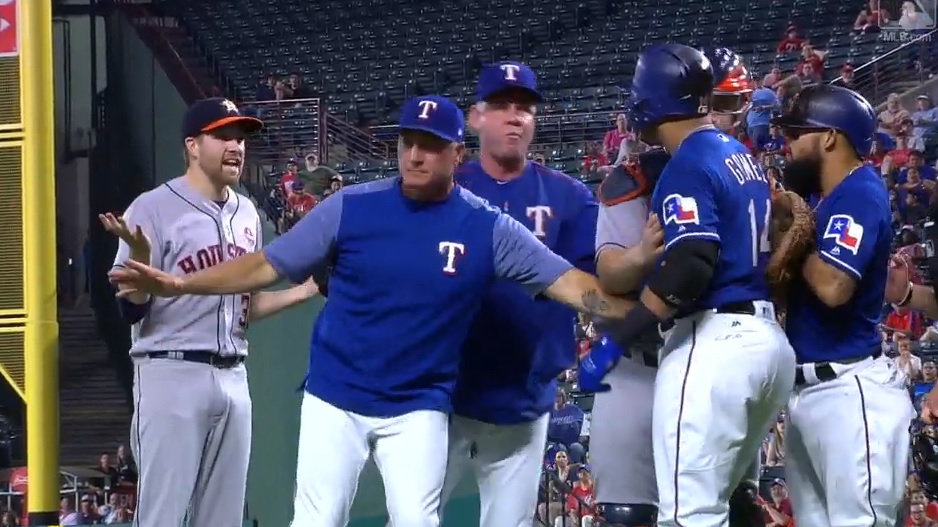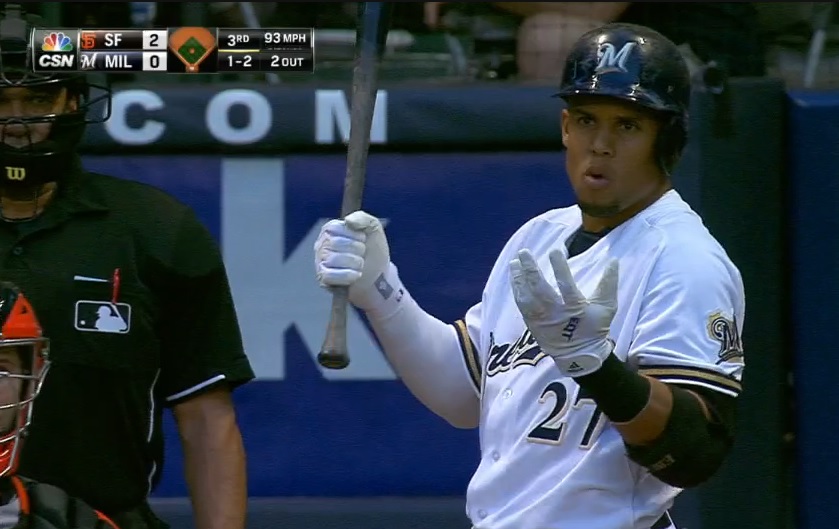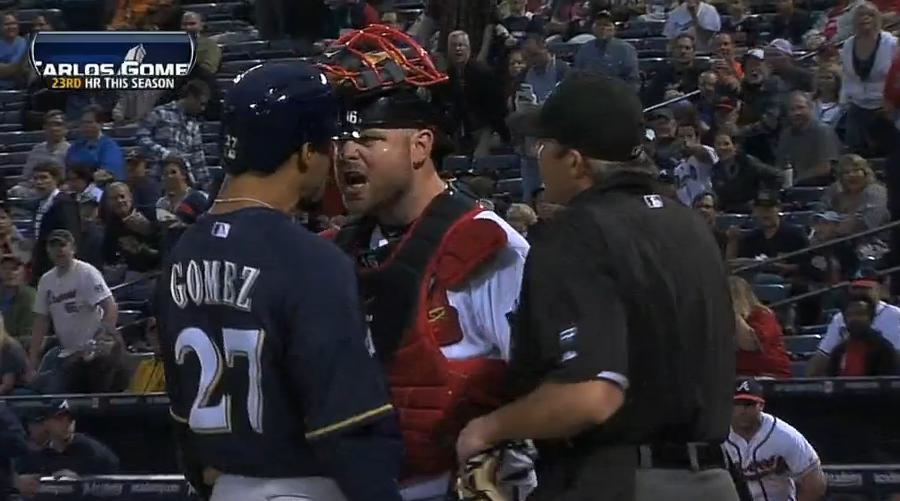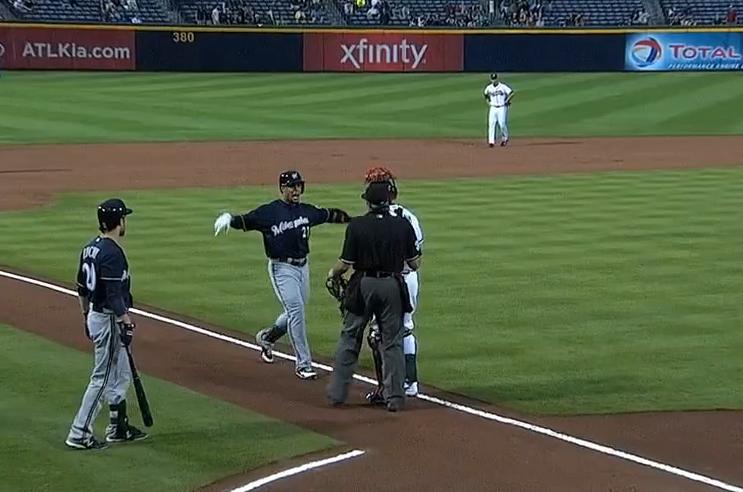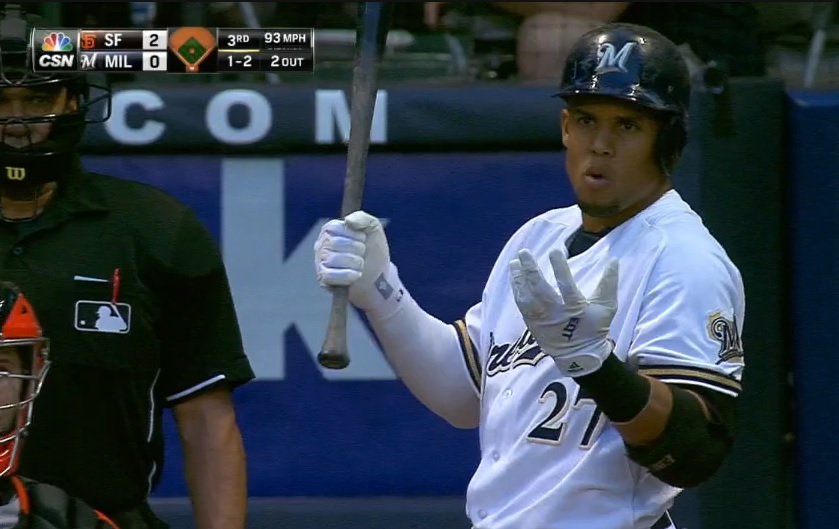
Carlos Gomez officially announced his retirement in Milwaukee over the weekend, and man are we sad to see him go. The guy played for six teams over 13 seasons, made a couple of All-Star rosters, had good speed and some power, played a solid outfield. But we loved him around these parts because there’s no player we covered more on the unwritten-rules beat.
Really, it’s not even close.
Gomez played with his own sense of panache, which in the days before on-field celebrations were common, tended to rub opponents the wrong way. Really, he was just ahead of his time. Also, he was frequently too fiery so for his own good.
His most notorious incident came in 2013, in in a game against Atlanta . Gomez, the game’s second batter, homered against Paul Maholm. This satisfied him for very particular reasons: About three months earlier Maholm had drilled Gomez in the knee with a fastball, which Gomez felt was intentional given that he’d battered Maholm to that point in his career. After hitting his homer, Gomez watched it for so long that catcher Brian McCann shouted at him to get his ass out of the batter’s box. This spurred Gomez to shout himself, at McCann and a number of other Braves, as he rounded the bases. Upon reaching third, he pointed at his knee. This was clearly all in service to revenge.
Thanks to that day, we now know that McCann harbors little tolerance for such shenanigans … and precious little patience. Rather than waiting for Gomez to cross the plate before lighting into him, the catcher planted himself about 15 feet up the third base line, completely blocking the runner’s path. When Gomez approached, he gave him an earful. It was a surreal scene.
From my post the next day:
McCann shouted [Gomez] down without ceding the baseline, players from both teams stormed the field, Reed Johnson landed a punch to Gomez’s noggin, and the ensuing scrum carried everybody to the backstop. Gomez was ejected shortly thereafter, and left the field without ever touching the plate. (The umps invoked Rule 7.06[a], which says that an “obstructed runner shall be awarded at least one base beyond the base he had last legally touched before the obstruction,” and allowed him to score.) Watch it all here.
“I’ve never seen anything like it in my baseball career, whether it be the big leagues, minor leagues or little leagues,” said Braves manager Fredi Gonzalez.
It was a monster moment, completely indelible when it comes to that era of baseball. For Carlos Gomez, it was one of many. The guy set standards for home run pimping, and might have been the first big leaguer to dab while crossing the plate.
He spurred a clash with Pittsburgh by showboating on what turned out to be a luck-induced triple. (“If you’re going to hit a home run, you can watch it,” said Gerritt Cole, the pitcher who served it up. “If you’re going to hit a fly ball to center field, don’t watch it.”)
There was the time that Gomez nicked Joe Mauer with a bat flip after a home run, then, with his back turned, gave Mauer jazz hands when the catcher mentioned that he might want to be more careful in the future. Never mind that the homer came when his team trailed 15-0.
There was the time that Gomez heard from somebody in the Astros system … or from somebody who heard from somebody in the Astros system … that Collin McHugh wanted to drill him for some reason or other, and then, when McHugh threw an inside pitch (which didn’t come close to hitting Gomez), he got all puffy about it, spurring benches to clear.
Then again, before that point was an Astro himself, stirring up unnecessary friction with the Yankees.
Sometimes his confrontations weren’t even of his own making, such as the time that he yelled at himself in frustration, which was still enough to tick off Madison Bumgarner. Or when he slid hard—and clean—into second base after being drilled, which pissed off the Nationals. Or when he stole a base while his team led 5-0 in the eighth … after manager Ron Roenicke inserted him as a pinch-runner, ostensibly to do precisely that.
With all of that history, it is remarkable to think that the guy still had a sense of humor.
Carlos Gomez made this beat way more interesting than it might otherwise have been. May he have a long and satisfying retirement.
